Politics
No ground troops, but maybe air support, to back Ukraine peace deal, says Trump
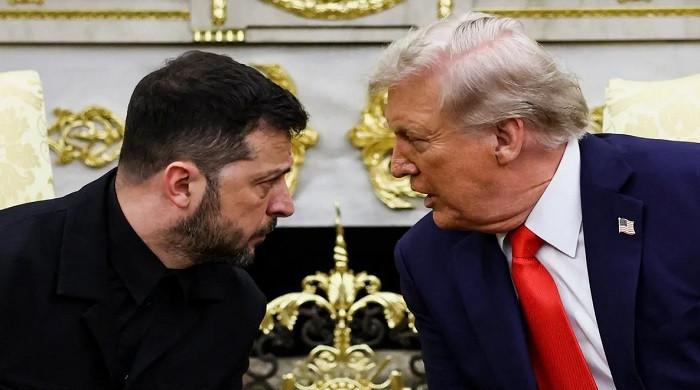
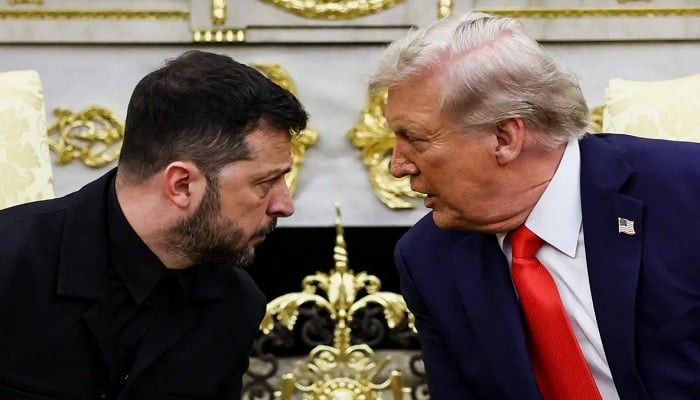
- Russia launches largest attack this month amid peace moves.
- Uncertainty over US security guarantees for Ukraine.
- Possible sites for trilateral summit considered.
US President Donald Trump said on Tuesday he ruled out putting US troops on the ground in Ukraine but said the United States might provide air support as part of a deal to end Russia’s war in the country.
A day after Trump pledged security guarantees to help end the war at an extraordinary White House summit, the path to peace remained uncertain as the US and allies prepared to work out what military support for Ukraine might include.
“When it comes to security, (Europeans) are willing to put people on the ground. We’re willing to help them with things, especially, probably, … by air,” Trump said in an interview with the Fox News “Fox & Friends” program. He did not elaborate.
Following Monday’s meeting, Russia launched its biggest air assault in more than a month on Ukraine, and Trump conceded that Russian President Vladimir Putin might not want to make a deal after all. “We’re going to find out about President Putin in the next couple of weeks,” he said.
The nature of US military aid for Ukraine under a peace deal was unclear. Air support could take many forms, such as missile defence systems or fighter jets enforcing a no-fly zone.
White House press secretary Karoline Leavitt confirmed US air support was “an option and a possibility,” but, like Trump, did not provide any details.
“The President has definitively stated US boots will not be on the ground in Ukraine, but we can certainly help in the coordination and perhaps provide other means of security guarantees to our European allies,” she said at a news briefing.
Analysts say more than 1 million people have been killed or wounded in the conflict, which began with Russia’s full-scale invasion in February 2022.
Trilateral meeting
Ukrainian President Volodymyr Zelenskiy hailed the White House talks as a “major step forward” toward ending Europe’s deadliest conflict in 80 years and setting up a trilateral meeting with Putin and Trump. Zelenskiy’s warm rapport with Trump contrasted sharply with their disastrous Oval Office meeting in February.
Trump discussed Budapest as a venue for a summit involving Zelenskiy and Putin with Hungarian Prime Minister Viktor Orban on Tuesday, a White House official said.
Istanbul, where delegations for the two countries have met previously, has also been mentioned, a senior administration official said.
Hungary is one of the few European places that Putin could visit without fear of arrest on International Criminal Court charges since Orban maintains close ties with the Russian leader. It was unclear whether Ukraine would accept Hungary as a venue.
Neutral Switzerland also said it would be ready to host Putin for any peace talks.
Russia launched 270 drones and 10 missiles in an overnight attack on Ukraine, the Ukrainian air force said. The energy ministry said the strikes caused big fires at energy facilities in the central Poltava region, home to Ukraine’s only oil refinery.
However, Russia also returned the bodies of 1,000 dead Ukrainian soldiers on Tuesday, Ukrainian officials said. Moscow received 19 bodies of its own soldiers in return, according to the state-run TASS news agency.
Ukraine’s allies held talks in the so-called Coalition of the Willing format on Tuesday, discussing additional sanctions to crank up the pressure on Russia. The grouping has also agreed that planning teams will meet US counterparts in the coming days to develop security guarantees for Ukraine.
NATO military leaders were expected to meet on Wednesday to discuss Ukraine, with US General Dan Caine, the chairman of the Joint Chiefs of Staff, expected to attend virtually, officials told Reuters.
‘Tiptoing around Trump’
Although Trump said on Monday that Putin asked for a bilateral meeting with Zelenskiy, the Kremlin has made no explicit commitment. Foreign Minister Sergei Lavrov said on Tuesday that Moscow did not reject any format for Ukraine peace talks, but any leaders’ meeting “must be prepared with utmost thoroughness”.
Putin has said Russia will not tolerate troops from the NATO alliance in Ukraine. He has also shown no sign of backing down from demands for territory, including land not under Russia’s military control, following his summit with Trump on Friday in Alaska.
Neil Melvin, a director at the International Security at the Royal United Services Institute think-tank, said Russia could drag out the war while trying to deflect US pressure with a protracted peace negotiation.
Melvin said both Ukraine and its European allies, on one side, and Russia on the other were striving “not to present themselves to Trump as the obstacle to his peace process,” Melvin said.
“They’re all tiptoeing around Trump” to avoid any blame, he said, adding that Trump’s statements on security guarantees were “so vague it’s very hard to take it seriously.”
Politics
World reacts to martyrdom of Iran’s Supreme Leader Khamenei
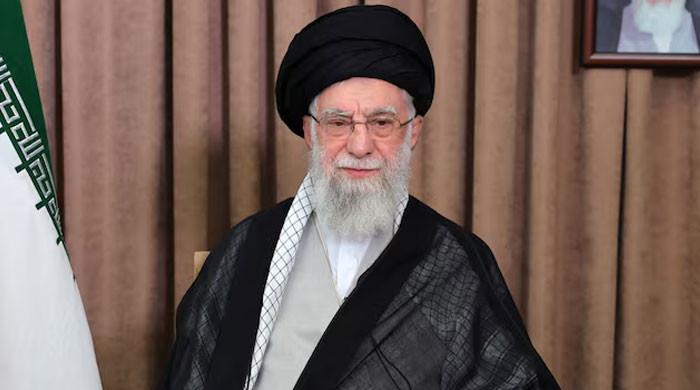
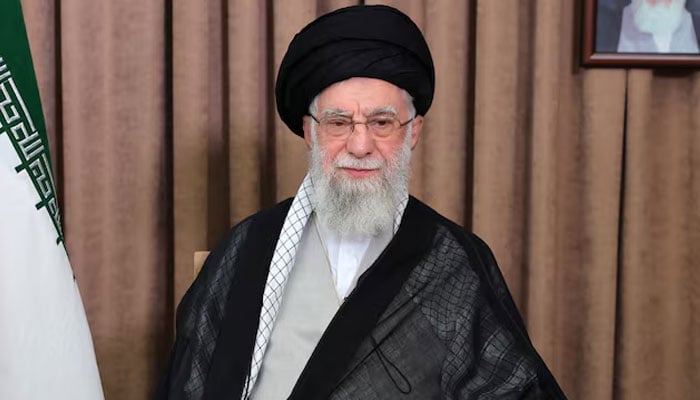
Iran’s Supreme Leader Ayatollah Ali Khamenei was martyred in US and Israeli strikes, state media confirmed, as another wave of attacks hit the country on Sunday.
Several countries, global bodies and prominent groups responded to the assassination of Iran’s supreme leader, urging de-escalation.
Pakistan
Prime Minister Shehbaz Sharif on Sunday denounced the targeting of Iran’s supreme leader in joint strikes by the United States and Israel, saying such actions were a “violation of the norms of international law”.
In a post on X, PM Shehbaz said that it was an age-old convention that the heads of state or government should not be targeted.
“Pakistan also expresses concern over the violation of the norms of international law. It is an age-old convention that the heads of state/government should not be targeted.”
Russia
President Vladimir Putin described Khamenei’s killing as a “cynical murder” that violated “all standards of human morality and international law”.
“Please accept my deep condolences in connection with the murder of the Supreme Leader of the Islamic Republic of Iran, Seyed Ali Khamenei, and members of his family, committed in cynical violation of all norms of human morality and international law.”
China
China said it “strongly condemns” the United States and Israel’s assassination of Iran’s Supreme Leader Ayatollah Ali Khamenei, calling again for a halt to military actions.
The assassination was “a serious violation of Iran’s sovereignty and security, a trampling on the aims and principles of the UN Charter and the basic norms of international relations”, Beijing’s foreign ministry said in a statement.
“China firmly opposes and strongly condemns this,” it added, calling for an “immediate halting of military operations”.
Malaysia
Malaysian Prime Minister Anwar Ibrahim on Sunday “unreservedly” condemned the killing of Iran’s Supreme Leader Ali Khamenei.
“I unreservedly condemn the killing of Iranian Supreme Leader Ali Khamenei. This act places the Middle East on the edge of grave and sustained instability. I extend my condolences to the Islamic Republic of Iran and to the Iranian people at this profoundly difficult momen,” wrote
Indonesia’s Ulema Muslim Clerical Council
“The Indonesian Ulema Council (MUI) expressed its deepest condolences for the death of Iran’s Supreme Leader, Ali Khamenei, as a result of the Israeli-American attack on February 28.
“The United States, which is playing a central role in managing the Palestinian conflict through the BoP (Board of Peace), faces a major question: is this strategy truly aimed at a just peace, or is it actually strengthening an unequal security architecture and burying Palestinian independence? Therefore, the MUI urges the Indonesian government to revoke its membership from the BoP.”
North Korea
North Korea condemned the US and Israeli strikes as an “illegal act of aggression”.
The attacks “constitute a thoroughly illegal act of aggression and the most vile form of violation of sovereignty in their nature”, a Ministry of Foreign Affairs spokesperson said, according to state media.
Iranian president
“The martyrdom of the Supreme Leader at the hands of Israel and the criminal America was a great disaster for our country… America and Israel should know that it will bring them nothing but embarrassment.”
Politics
IRGC Claims Missile Strikes on US Aircraft Carrier Amid Escalation


Iran’s Islamic Revolutionary Guard Corps (IRGC) on Sunday claimed it had launched ballistic missile strikes targeting a US aircraft carrier, identifying the vessel as the USS Abraham Lincoln, as part of what it called “Operation True Promise 4.”
In a statement, the IRGC’s public relations office said four ballistic missiles were fired at the carrier, adding that Iran’s military campaign had entered a “new phase.” The group warned that both land and sea would become the “burial place” for what it described as aggressors.
Multiple Waves of Strikes Announced
Earlier, the IRGC said it had launched the seventh and eighth waves of strikes under the same operation, in response to what it termed ongoing aggression by the United States and Israel.
Iran claimed it had carried out precision strikes on military targets in Israeli territory, including areas near Tel Aviv and Haifa. It also alleged that Israeli officials had taken shelter due to heightened security concerns.
Targets Across the Gulf
The IRGC further stated that it had targeted US-operated facilities in West Asia, including the US Fifth Fleet base in Bahrain, as well as installations in Qatar and the United Arab Emirates.
There has been no immediate confirmation from US or Israeli officials regarding the reported missile strikes or the extent of any damage.
Rising Regional Tensions
The developments mark a sharp escalation in regional tensions following reported military exchanges between Iran, Israel and US forces over the weekend.
Independent verification of the claims remains pending, and international observers have urged restraint amid fears of a broader conflict across the Middle East.
Politics
Key Iranian figures martyred in US-Israel military strikes
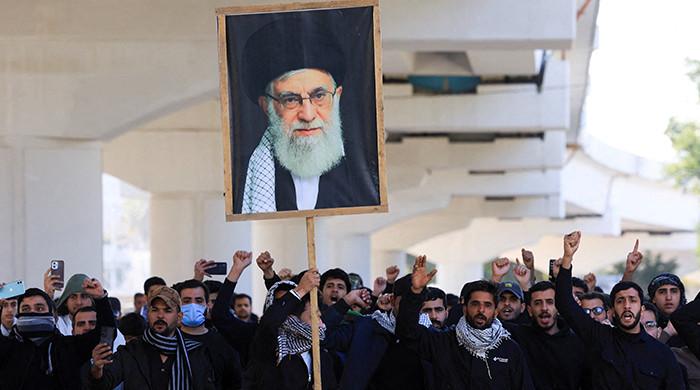
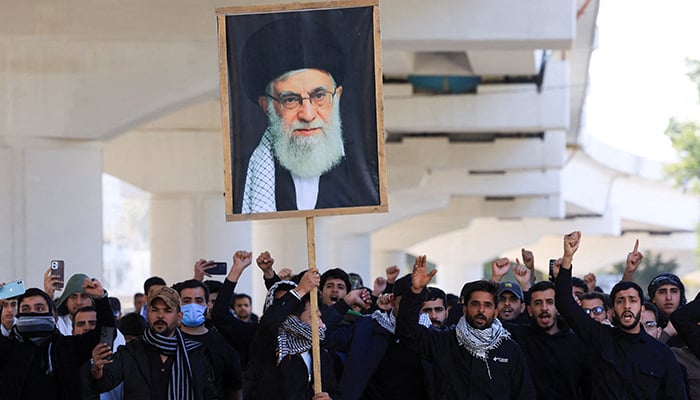
A number of Iranian senior leaders, including Supreme Leader Ayatollah Ali Khamenei, have embraced martyrdom in the “unprovoked and unwarranted” airstrikes by Israel and the United States.
As crowds gathered in Tehran, explosions rang out, and the Israeli military announced that it was again striking targets in the heart of the city — as more blasts were heard in Jerusalem, Riyadh, Dubai, Doha and Manama.
Iran’s President Masoud Pezeshkian declared Khamenei’s assassination a “declaration of war against Muslims” and warned: “Iran considers it its legitimate duty and right to avenge the perpetrators and masterminds of this historic crime.”
Iranian state media have confirmed the killing of several senior figures:
1. Ayatollah Ali Khamenei, supreme leader of Iran
2. Ali Shamkhani, representative of the Supreme Leader in the Supreme Defence Council
3. General Abdolrahim Mousavi, Iran’s Armed Forces chief of staff
4. Major General Mohammad Pakpour, commander-in-chief of the Islamic Revolution Guards Corps (IRGC)
5. Aziz Nasirzadeh, Minister of Defence
6. Gholamreza Rezaian, police intelligence chief of Iran
Separately, the daughter, son-in-law, and granddaughter of Ali Khamenei also embraced martyrdom in the US and Israeli airstrikes.
-

 Politics1 week ago
Politics1 week agoPakistan carries out precision strikes on seven militant hideouts in Afghanistan
-

 Business1 week ago
Business1 week agoEye-popping rise in one year: Betting on just gold and silver for long-term wealth creation? Think again! – The Times of India
-

 Sports1 week ago
Sports1 week agoKansas’ Darryn Peterson misses most of 2nd half with cramping
-

 Tech1 week ago
Tech1 week agoThese Cheap Noise-Cancelling Sony Headphones Are Even Cheaper Right Now
-

 Entertainment1 week ago
Entertainment1 week agoSaturday Sessions: Say She She performs "Under the Sun"
-

 Sports1 week ago
Sports1 week agoHow James Milner broke Premier League’s appearances record
-

 Entertainment1 week ago
Entertainment1 week agoViral monkey Punch makes IKEA toy global sensation: Here’s what it costs
-

 Sports1 week ago
Sports1 week agoFloyd Mayweather to come out of retirement again






